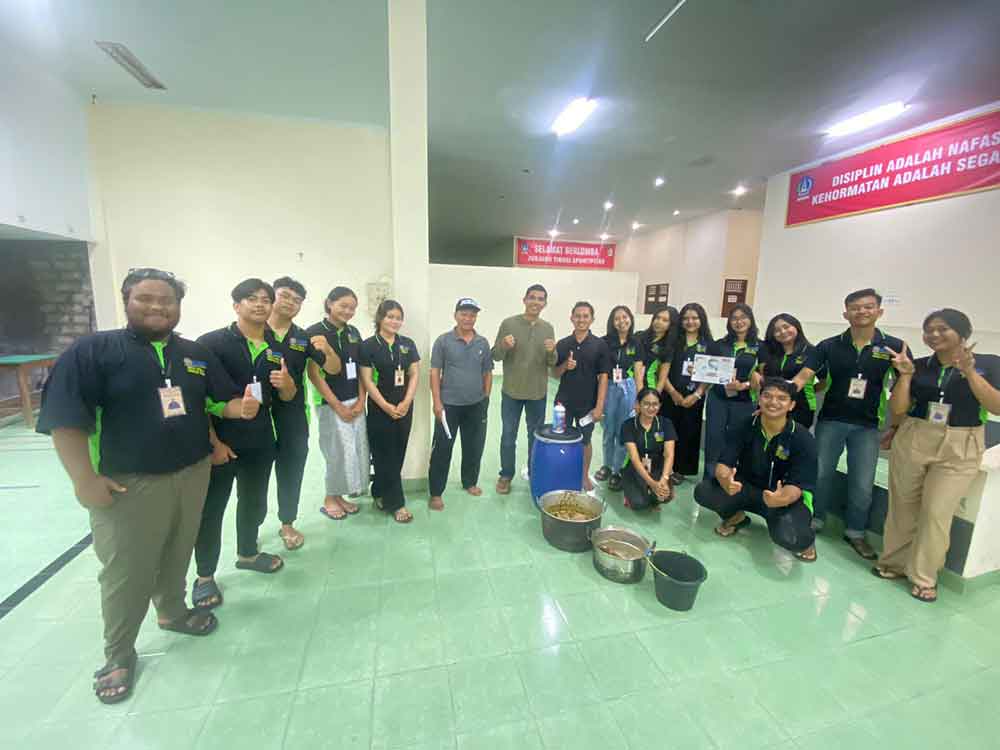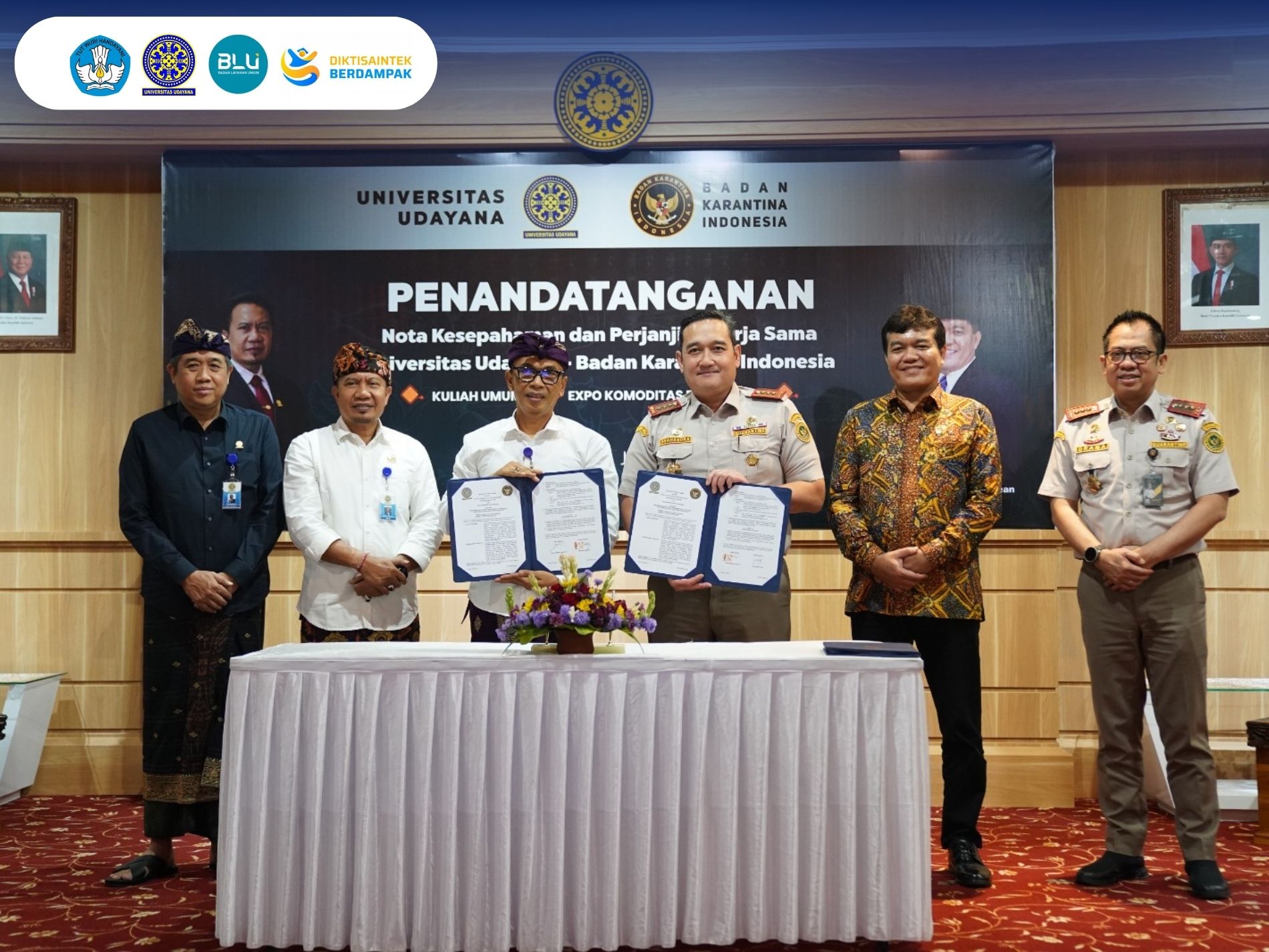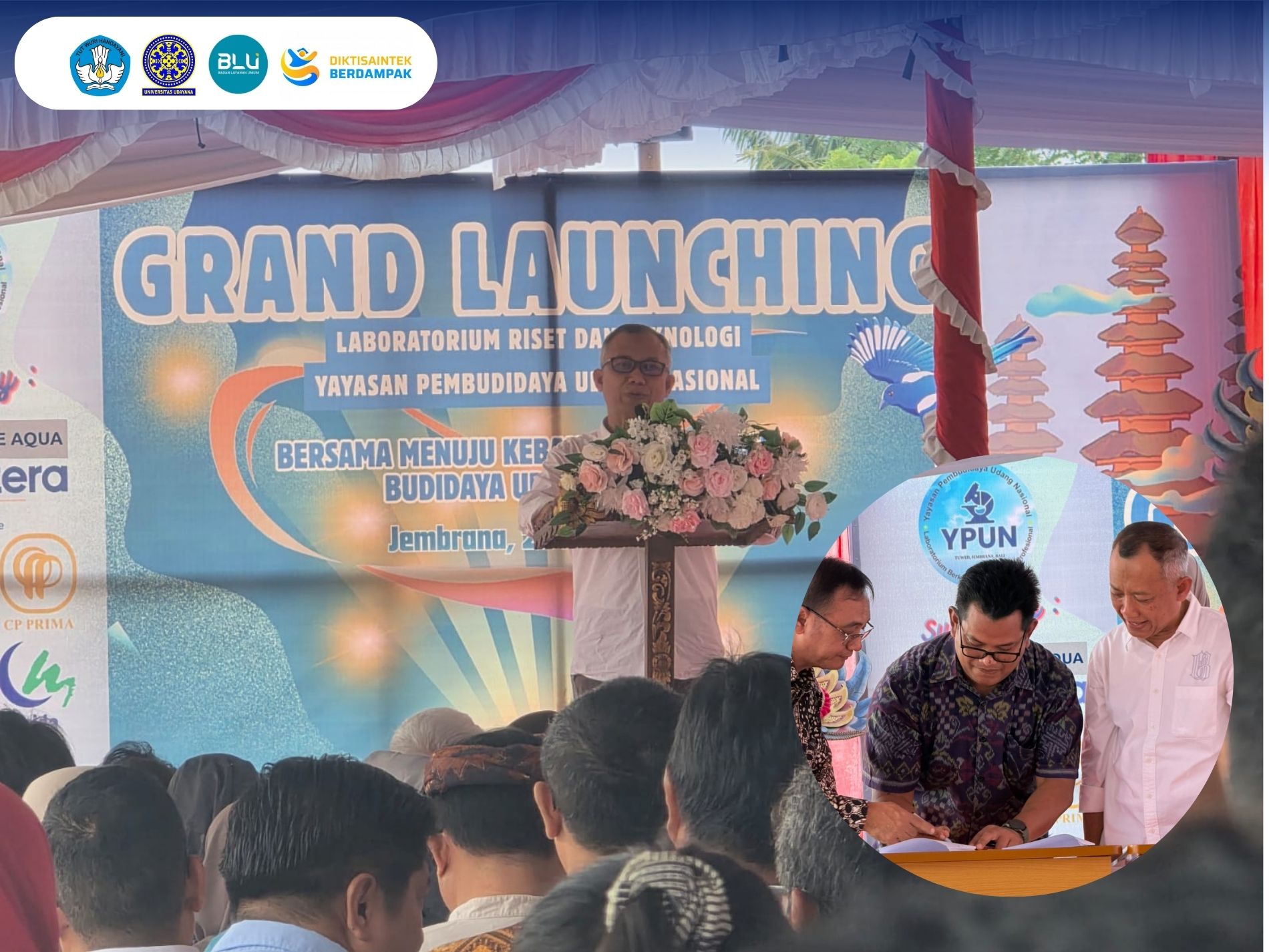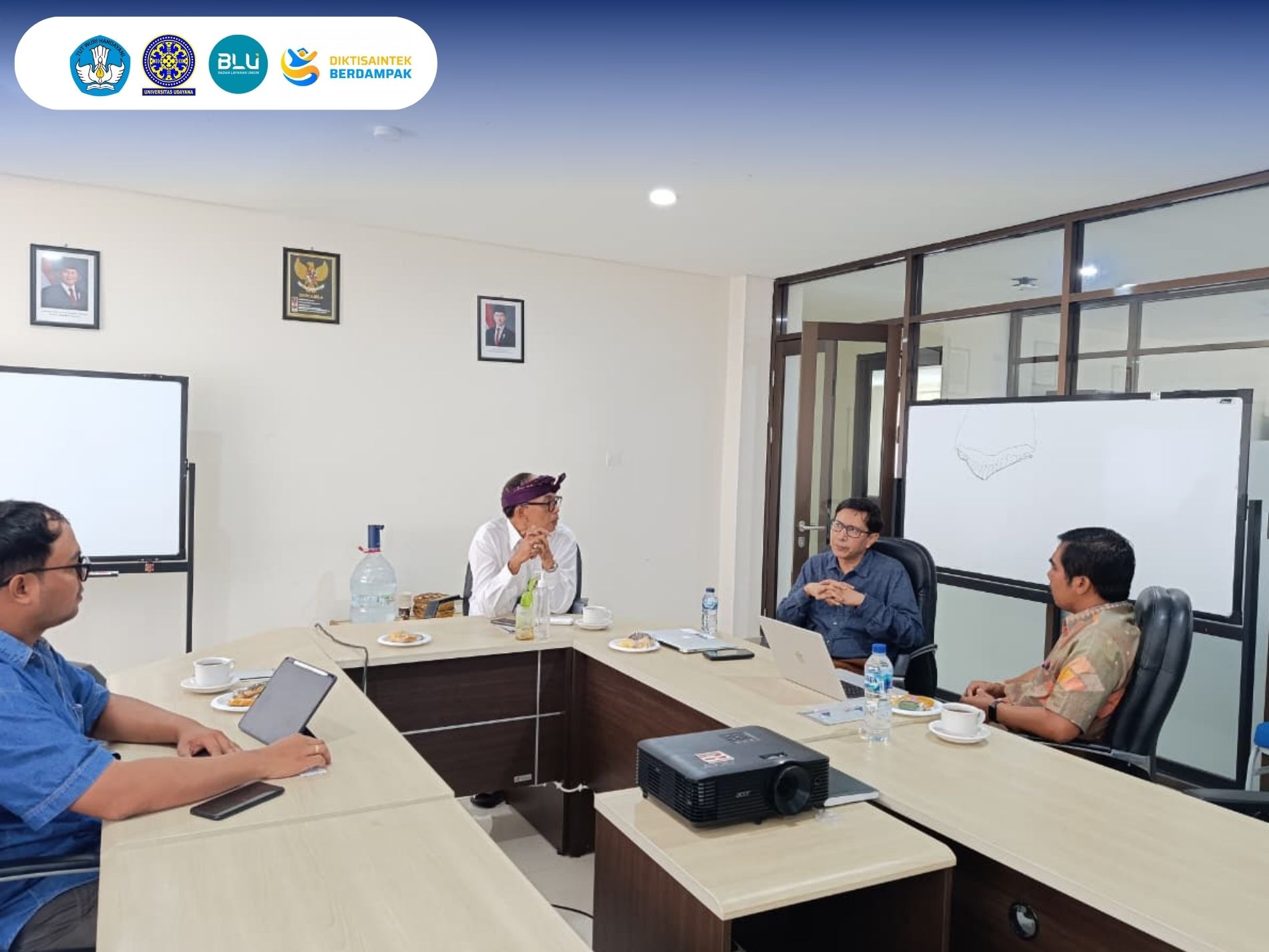Socialization of Natural Probiotic Production: A Strategic Step to Support the Sustainability of Catfish Farming in Sembung Village under the Sembung Village Development Program by FKP UNUD 2024
In an effort to improve the sustainability and productivity of catfish farming among the residents of Sembung Village, a socialization event on natural probiotic production was successfully held on Wednesday, December 11, 2024. This initiative serves as a strategic step to promote more environmentally friendly and efficient aquaculture practices. Despite rainy weather during the event, participants' enthusiasm remained high, reflecting their strong commitment to learning how to produce natural probiotics for their farming activities.
The event featured Mr. I Gusti Ngurah Lanang Dauh, S.E., as the keynote speaker and facilitator. He delivered comprehensive material on how to produce natural probiotics suitable for a capacity of 50 liters of water, aiming to support sustainable catfish farming practices. His presentation included detailed steps, from preparing materials to highlighting the benefits of probiotics in enhancing fish and water health.
The program began with a live demonstration by Mr. Gung Lanang, who explained the technical details of making natural probiotics. The process involved utilizing locally available ingredients such as papaya leaves, bitter melon leaves, mangosteen leaves, soursop leaves, neem leaves, turmeric, galangal, molasses, and the probiotic Probio-7, followed by fermentation in a drum. "This process is not only simple but also sustainable because it uses materials that are easily found around us," he stated.
In his explanation, Mr. Gung Lanang emphasized the importance of natural ingredients like papaya leaves, turmeric, galangal, and molasses, which support the growth of beneficial microorganisms and improve pond water quality. “These natural probiotics not only aid in fish digestion but also balance the micro-ecosystem in aquaculture ponds, ultimately enhancing the quality of the fish meat,” he mentioned during one of the sessions.
The event proceeded smoothly, even in the absence of faculty members from the Faculty of Marine and Fisheries of Udayana University and field supervisors due to unavoidable circumstances. The atmosphere remained productive thanks to the active participation of local farming groups, who showed great interest in the material presented. One participant asked, "How can we ensure that the probiotics we make remain effective over time?" Mr. Gung Lanang enthusiastically responded, "The key lies in a proper fermentation process, maintaining clean tools, and ensuring the availability of high-quality main ingredients such as Probio-7 and molasses."
Mr. Made Suyasa, the leader of the Mina Ayu aquaculture group in Sembung Village, expressed his gratitude for the program. “We are very thankful for the knowledge shared today. With natural probiotics, we hope to reduce reliance on chemical products and sustainably improve our harvests,” he said with excitement.
The event concluded with the distribution of brochures on proper catfish farming techniques by the organizing team to the attending aquaculture groups. “We’re thrilled to receive such practical and useful information. With probiotics, we hope our farming results will improve significantly,” said one of the group members enthusiastically.
The implications of this program are highly positive, as it is expected to enhance the efficiency of catfish farming, reduce dependence on chemical products, and support the sustainability of aquatic ecosystems. With the knowledge gained, the aquaculture groups are anticipated to implement these techniques in their farming practices, bringing long-term economic and ecological benefits to Sembung Village.




UDAYANA UNIVERSITY